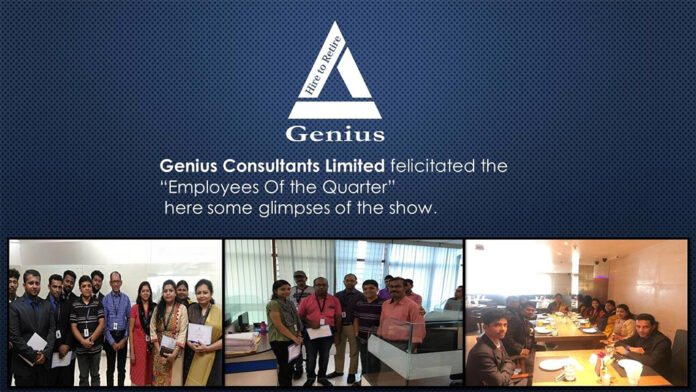
~The report disclosed that a significant 52% of participants stated that they tend to bring their work back at home due to an excessive amount of pressure and a heavy workload~
National, 07 February 2023: Genius Consultants Limited, India’s leading Integrated HR Solutions providers, recently conducted a comprehensive nationwide survey on “Work Spillover and Carrying Back Work at Home.” The entire process conducted between November 16th, 2022 and December 16th, 2022, has received participation from 1173 individuals across various sectors.
Work spillover has been identified in to two categories mainly- Positive & Negative. While Positive spillover can occur when an employee’s job satisfaction and positive experiences at work lead to improved mood and well-being outside of work. On the other hand, negative spillover can occur when an employee’s job stress and undesirable experiences at work lead to adverse effects on their mood and well-being outside of work, potentially leading to burnout.
The survey revealed that 38% of India Inc believes that work spillover has a negative effect on employees, causing increased levels of anxiety and stress in their daily lives. Despite the fact that a significant portion of employees engage in this practice, a notable 37% of respondents expressed their opposition to it. The survey was designed to gather insights from employees and aimed to investigate the prevalence of work spillover and the carrying of work back home.
The study conducted by Genius Consultants Limited has unveiled that a majority of 52% of participants carry their work back home as a result of excessive pressure and an overburdening workload. Additionally, 39% of participants have attributed this trend to unjustified work timelines and persistent follow-ups from senior management while remaining 9% have called out unsupportive or unskilled team members as a reason of carrying work back home to meet work delivery timelines. Furthermore, a significant 32% of participants acknowledged that work spillover leads to reduced family time, while 23% cited decreased work efficiency and productivity as a consequence. The study also highlighted that not only does work spillover cause increased anxiety and stress, but an overwhelming 37% of participants concurred that they are often required to work on holidays and during leaves. A mere 30% reported not preferring to engage in work-related activities while on leave, while 21% of participants considered this to be a necessity based on the urgency of the job.
The prevalent issue of work spillover has been widely acknowledged, yet a significant 32% of participants in the survey expressed confidence in the resolution of this problem through the development of a skilled team through training. Moreover, 38% of participants believed that the redistribution of workload could effectively address the crisis. On the other hand, a handful of 10% placed their trust in senior management and sought their support in addressing this issue.
Commenting on the same, R P Yadav, CMD, Genius Consultants Ltd. shared his thoughts on the survey results, stating “Given the current situation of work spillover, it is imperative for employees to establish clear boundaries and effectively manage their time to avoid burnout. Employers must also shoulder the responsibility of providing their employees with the necessary resources and support to manage their workloads. The daily struggles of individuals have taken a toll on the mental health of many employees. However, effective communication between employees and employers can help to alleviate this problem and foster a better understanding among them. We firmly believe that conducting such surveys periodically is essential to gather valuable Industry perspectives on pressing issues.”
The survey was conducted on all social media platforms – Official GCL pages of LinkedIn, LinkedIn Polls, Twitter, Facebook & Instagram, relevant Facebook groups, Google Free Sites (Survey Monkey, Type form, Google forms, etc.).

This is my first time pay a quick visit at here and i am really happy to read everthing at one place